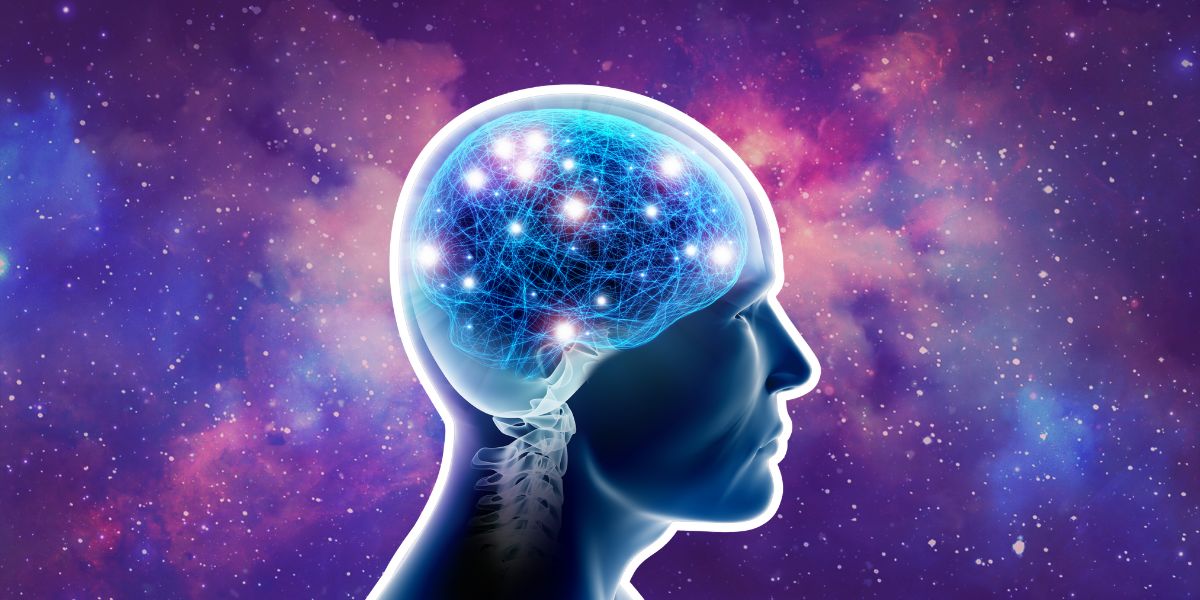The more we learn about the universe, from the movements of galaxies to the behavior of quantum particles, the more it seems to unveil a deeper, more authentic reality.
And yet, the greatest mystery might not be out there at all. It might be within us: consciousness itself.
Nobody really knows what it is, how it works, or why it even exists.
It has allowed us to explore the universe, observe its deepest secrets, and develop solutions based on our findings.
Yet, we seem to be more interested in decoding our physical experience than the incredible system that is projecting it all for us.
Rigorous research into quantum biology and consciousness is still in its infancy, but glimpses from neuroscience, physics, and philosophy hint that more is at play than we yet understand.
This article doesn’t claim answers—only a bridge between what we know and what we dare to wonder.
What if thought and observation are not just a biological side effect, but something stitched into the universe itself?
What if our consciousness belongs to a deeper reality than we know?
Let’s follow this thread.
What We Do Know: The Foundations Beneath The Mystery
Before we drift too far into the void, let’s anchor ourselves for a moment.
Here’s what we do know:
The brain emits tiny flashes of light.
Brain activity, once thought to be purely electrical, has revealed phenomena that may hint at quantum processes.
The brain produces ultra-weak photon emissions (UPEs), measurable even in total darkness.
If your brain is naturally producing light, even very tiny amounts, it hints that quantum-level activity might be happening inside your head.
The brain operates with incredible energy efficiency.
About 20 watts of power. Only enough to power a dim lightbulb.
That’s how much it takes for the brain to perform computations far beyond what this output should allow.
While classical computers require more power for more processing, quantum computers do massive calculations with very little energy, using superposition and entanglement to work on many possibilities at once.

Superposition and entanglement have been observed in other biological systems.
Biological behaviors like photosynthesis and bird navigation already operate through quantum phenomena.
If quantum processes can persist inside biological systems as delicate as plants and bird brains, it’s not so far-fetched to imagine them operating within the intricate machinery of our own neurons.
Remarkably, recent experimental evidence suggests these processes might already be active.
Emerging evidence suggests quantum processes could influence brain-related proteins.
This takes the idea to the next level—real physical evidence suggests the brain might use quantum mechanics at a cellular level.
Criticality: Quantum systems and the brain both work best on the edge.
Criticality, the balancing point between order and chaos, is well-studied in physics, biology, and complexity science.
Quantum systems, biological life, and the brain don’t operate optimally in too much order or too much chaos.
The emergence of complex systems in our universe requires this sweet-spot.
Particles, the foundation of reality, are based on uncertainty—just like consciousness.
At the smallest scales, certainty doesn’t exist.
Particles don’t have a definite position or speed until they are measured, collapsing their probability wave into a specific state.
Consciousness, which also navigates possibilities, might also emerge from this same fuzzy ground.
Beyond Biology: Quantum as the Will Behind the Universe
Hold on tight to your seatbelts. We’re heading into metaphysical turbulence here.
If we’re to dare imagine a higher level of reality influencing the emergence of our consciousness, why not give that reality a name and role?
What if quantum is the will behind our universe?
Let’s break it down logically:
Quantum fields are not objects. They are potential itself. They are the structure behind everything we can see.
Consciousness may be a natural emergence of this structure.

What if life, thought, and our entire inner reality is also made of quantum fields?
This would mean, by ignoring these inner phenomena, dismissing them as “human constructs”, we could be overlooking a major area of physics.
Could recognizing this blind spot help overcome some of physics’ greatest roadblocks?
Is Consciousness Above Physics?
Our inner world—50% of the human experience—has long been overlooked.
Nobody understands why it exists—yet everyone knows it does.
There’s no physical proof of its existence, but we don’t need proof anyway.
Dreams, imagination, intuition, morality, and observation itself—they’re all a part of our universe. They all reflect the universe’s behavior.
Because we are part of this grand universe.
So, if physics is the study of our physical reality, anything that exists within the structure of reality falls under this category.
All we have is what is here. Higher dimensions, sub-atomic particles, dark matter… it’s all a part of our mysterious universe.
And it could finally be unveiling itself before us.
Now is the time for speculation, theories, interdisciplinary research, and even a little metaphysics.
Because if we’re able to crack the code of consciousness, we’ll have effectively reverse-engineered the mechanics behind our own reality.
The journey between physics and wonder has just begun.


Leave a Reply